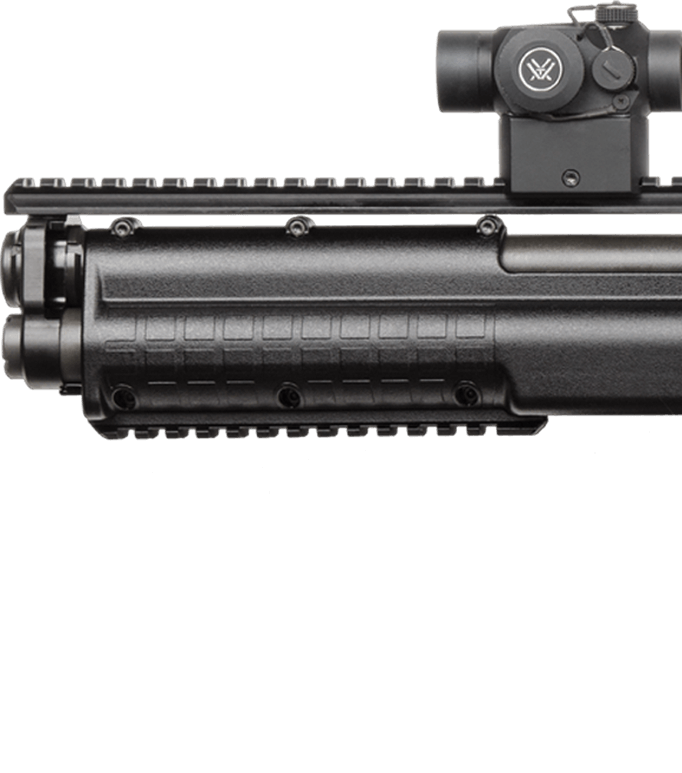Having knowledge of the basics regarding target shooting, in addition to continuous practice, helps increase your skill as you focus on a high score.
Learning to shoot a target is more than simply holding a weapon and firing randomly at various marks. Not only is it a significant skill, but it is also an activity that enables you to sharpen your fine motor skills. This involves using muscles in your fingers, hands, and wrists. Honing your fine motor skills increases your precision, hand-to-eye coordination, and dexterity.
Important Factors When Considering First Time Target Shooting
Whether you want to improve your mental focus, discipline, or relieve stress, target shooting is a significant step towards achieving your goals. However, before you start, you need to consider these factors to ensure that you get the best results:
Safety
When discharging a firearm, safety is always the number one factor to keep in mind. Shooting ranges enforce various target shooting rules to ensure that fatal injuries from the negligent discharge of firearms does not happen on the premises. One of the safety rules implemented by all professional shooting ranges is that participants should keep their guns unloaded until they get to the firing line under the supervision of a Range Safety Officer.
Start small. If you're a first-time shooter, someone that has minimal experience with firearms or maybe just recoil shy, let your Range Safety Officer or instructor know that you would like to start off with a small caliber platform. At the firing line, pay attention to all instructions given by RSOs and your instructor. Always treat every firearm on the line as if it is loaded and keep all muzzles pointed downrange, in a safe direction until they have been cleared, inspected by an RSO, flagged and put into their proper case for transport. Remember, anyone on or off the firing line can call out the cease fire command if they see something unsafe. Never advance past the firing line with any part of your body until the range has been called “cold” and made safe by an RSO.
Excellent Guidance
Having an experienced instructor is crucial to helping you safely get the basics of target shooting. From working on proper grip to weapons manipulation to knowing the individual components of your firearm and how they work. A good, professional instructor can increase the rate at which you learn.
You can easily avoid rookie mistakes by paying attention to an experienced instructor who has in-depth knowledge of firearms handling.
Benefits of Target Shooting
Much like golf, darts, or just about any sport that requires focus on the precise placement of a ball or an object, successful target shooting is the result of time put into practice. Some of the benefits of achieving those skills is a mental focus that sharpens your abilities and the satisfaction of your results. Continued practice raises the bar each time and presents new challenges as you expand your skill set. These achievements can translate to any part of your daily life, such as your focus at work, school or even another sport or activity. Target shooting is a series of problem solving events that take place in the mind and body. Mastering those variables and applying that focus keeps the mind sharp.
Enhance Your Fine Motor Skills
 Working on the coordination of your finger, hand and wrist muscles is not limited to positively impacting your dexterity. By refining your fine motor skills, you reduce unnecessary movement and inadvertently hone your gross motor skills. Gross motor skills primarily involve the muscles you use to achieve unfocused goals, such as lifting a box, petting your dog or walking. Enhancing fine motor skills can help you focus faster in a body alarm scenario where the mind typically relies on gross motor skills. For instance, if someone throws a ball at you, your reaction time might be slower than someone that has honed those gross motor skills by focusing them down to something such as precision target shooting. In a self-defense situation, it is critical to have those skills focused to a point that they become natural. Think of well-trained boxers. They focus on precision in both offense and defense. Reaction time for both is important to their success. I always live by the ol’ adage, “aim small, miss small.”
Working on the coordination of your finger, hand and wrist muscles is not limited to positively impacting your dexterity. By refining your fine motor skills, you reduce unnecessary movement and inadvertently hone your gross motor skills. Gross motor skills primarily involve the muscles you use to achieve unfocused goals, such as lifting a box, petting your dog or walking. Enhancing fine motor skills can help you focus faster in a body alarm scenario where the mind typically relies on gross motor skills. For instance, if someone throws a ball at you, your reaction time might be slower than someone that has honed those gross motor skills by focusing them down to something such as precision target shooting. In a self-defense situation, it is critical to have those skills focused to a point that they become natural. Think of well-trained boxers. They focus on precision in both offense and defense. Reaction time for both is important to their success. I always live by the ol’ adage, “aim small, miss small.”
Set Your Goals and Crush Them
As we mentioned above, target shooting is beneficial to mental focus, but what can it do for you physically? Well, there are several shooting disciplines such as tactical training classes, 3-Gun, USPSA, and IDPA matches to name a few that require mental and physical fitness to achieve success. For even the moderately experienced shooter, these disciplines are a safe, healthy way to advance your gun handling skills. These skills are critical for the safety of others, yourself and loved ones if you intend to carry a firearm for personal defense. Target shooting is not just a matter of aiming and pulling the trigger in a static environment. Learning to hone your shooting skills and mindset in a disruptive environment can be the difference between life and death. When interviewed, it’s commonly said, “I just fell back on my training” when talking to someone that found themselves on the winning end of a survival situation. Shooting can be recreational and very fun, however it’s a perishable skill… you must train often and continue to challenge yourself to maintain a high level of proficiency.
Getting Technical
By nature, shooting is exciting; hitting your targets always leaves you feeling accomplished. Here are some basics to get you started. These are skill sets that are practiced routinely by professional shooters across all disciplines. Grip: Whether you’re practicing with a pistol or long gun, proper grip is the foundation to your success. Notice I didn’t say “comfortable grip”. Not every firearm is going to be comfortable to hold, however every firearm can be properly gripped. Your grip will determine how much or little control you have over the gun you’re firing. Mitigating recoil is the key to safely and effectively handling any firearm. Sight Picture: When looking down the iron sights of a handgun, rifle and yes… even shotgun, the goal is to align the front and rear sights while maintaining a heavy focus on the front sight with a soft focus on the rear sight and target. If looking through a red dot or scope, the same concept is in play, but with experience, the focus for most is made easier. Pro Tip: It’s extremely important to have your sights or optic zeroed for the ammunition you’re using. Trigger Control: A proper trigger squeeze, press or pull requires honing those fine motor skills we talked about earlier. A consistent concentration on a proper trigger squeeze fine tunes the gross motor skills that take over in a chaotic scenario such as competitive shooting, training class or personal defense situation. The more you focus on trigger control during practice, the better your results will be in those scenarios. Not all triggers are created equally, so consistent practice with all of your firearms is important. In short, it’s imperative that you focus on the sight picture, grip, and trigger press of whichever gun you are using. Firing different guns requires proper adjustments. Competing and training with family and friends is a great, fun way to challenge yourself and push your skill to new levels.





